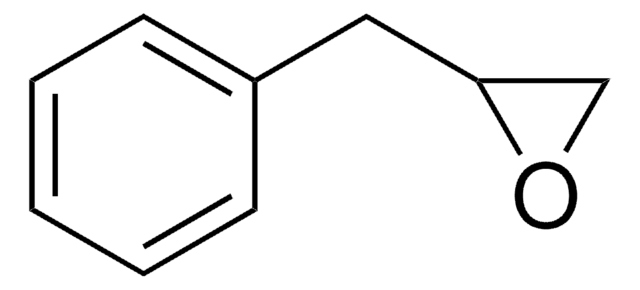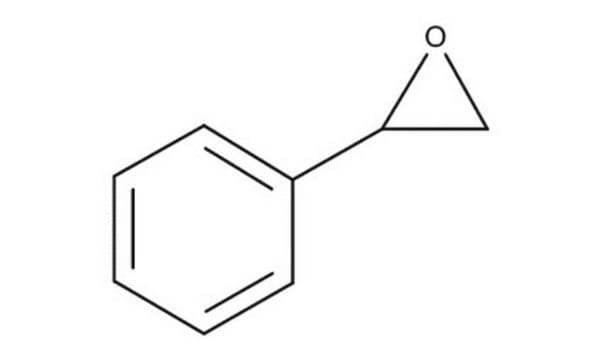726508
(R)-(+)-Styrene oxide
ChiPros®, produced by BASF, ≥98%
Synonym(s):
(R)-(+)-Phenyloxirane, (R)-Phenylethylene oxide
About This Item
Recommended Products
grade
produced by BASF
Quality Level
Assay
≥98%
≥98.0% (GC)
form
liquid
optical purity
enantiomeric excess: ≥98.0%
expl. lim.
~22 %
refractive index
n20/D 1.534 (lit.)
bp
89-90 °C/23 mmHg (lit.)
density
1.051 g/mL at 25 °C (lit.)
functional group
ether
phenyl
SMILES string
C1O[C@@H]1c2ccccc2
InChI
1S/C8H8O/c1-2-4-7(5-3-1)8-6-9-8/h1-5,8H,6H2/t8-/m0/s1
InChI key
AWMVMTVKBNGEAK-QMMMGPOBSA-N
Looking for similar products? Visit Product Comparison Guide
Legal Information
Signal Word
Danger
Hazard Statements
Precautionary Statements
Hazard Classifications
Acute Tox. 4 Dermal - Carc. 1B - Eye Irrit. 2
Storage Class Code
6.1C - Combustible acute toxic Cat.3 / toxic compounds or compounds which causing chronic effects
WGK
WGK 3
Flash Point(F)
176.0 °F - closed cup
Flash Point(C)
80 °C - closed cup
Choose from one of the most recent versions:
Certificates of Analysis (COA)
Don't see the Right Version?
If you require a particular version, you can look up a specific certificate by the Lot or Batch number.
Already Own This Product?
Find documentation for the products that you have recently purchased in the Document Library.
Our team of scientists has experience in all areas of research including Life Science, Material Science, Chemical Synthesis, Chromatography, Analytical and many others.
Contact Technical Service









